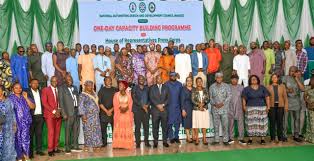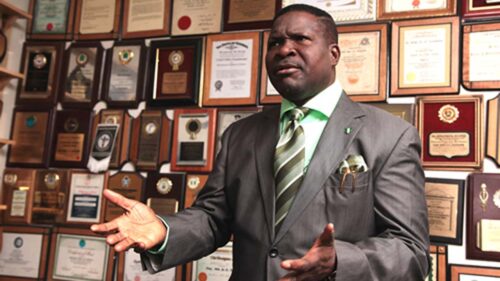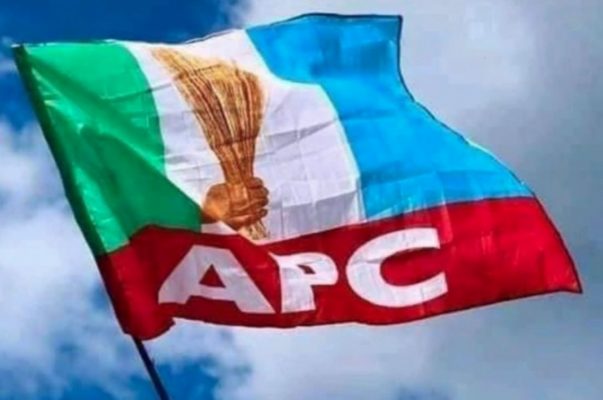Plea Bargaining: There’S Need for Legislative Intervention – Akpedeye
Dafe Akpedeye, a Senior Advocate and former Delta state Attorney General and Commissioner for Justice in this interview told PETER FOWOYO, that the Economic and Financial Crimes Commission (EFCC)introduced the concept of plea bargaining into Nigeria. Besides, the fiery lawyer spoke on the doctrine of necessity, constitutional amendment and sundry other issues.
Speculations are rife that the minister of petroleum may be quizzed by the anti graft agency for prosecution over allegations of corruption and a soft landing known as “plea bargaining” is being arranged for her. What is plea bargaining?
Plea bargain is an agreement in a criminal case between the prosecutor and defendant whereby the defendant agrees to plead guilty to a particular charge in return for some concession from the prosecutor. This may mean that the defendant will plead guilty to a less serious charge or to one of several charges in return for the dismissal of other charges. It may also mean that the defendant will plead guilty to the original criminal charge in return for a more lenient sentence.Black’s Law Dictionary, 9th Edition (2009), defines it as “A negotiated agreement between a prosecutor and a criminal defendant whereby the defendant pleads guilty to a lesser offense or to one of multiple charges in exchange for some concession by the prosecutor usually, a more lenient sentence or a dismissal of the other charges.
In respect of speculations about the Minister of Petroleum, as a lawyer, it will not be right for me to speak in conjectures, most especially when it involves allegations of crimes which no law enforcement agency in the country have officially investigated or pronounced upon. When the facts are clear and no longer in the realm of speculations, I can confidently speak on it.
Is plea bargaining legal in Nigeria legal jurisprudence?
In Nigeria, plea bargaining is usually employed in the trial of financial crime cases by making it part of the negotiation for the accused person to surrender some portion of money which he has embezzled and for which he is being tried. The origin of plea bargaining in Nigeria can be traced to 2005 wherethe Economic and Financial Crimes Commission (EFCC) introduced it in Nigeria, when it was first used in the trial of the former Inspector-General of Police, TafaBalogun and later in the case of DiepreyeAlamieyeseigha, the ex-Governor of Bayelsa State. The accused persons were allowed to enter guilty pleas to lesser charges after they had agreed to forfeit most of their assets acquired with the funds they stood accused of misappropriating to the State.It has also been subsequently used in a number of other high profile official corruption and banking fraud cases.
The only Nigerian legislation that specifically mentions plea bargaining is theLagos State Administration of Criminal Justice Law, 2007which provides in Section 75 that “Notwithstanding anything in this law or any other law, the Attorney-General of the State shall have power to consider and accept a plea bargain from a person charged with any offence where the Attorney-General is of the view that the acceptance of such plea bargain is in the public interest, the interest of justice and the need to prevent abuse of legal process.”
It is interesting to note that some other legislation provide for a process similar, though debatable, to the concept of plea bargaining. This is found in the Economic and Financial Crime Commission (EFCC) Act, 2004. Section 14(2) of the EFCC Act, 2004, which provides that“Subject to the provision of section 174 of the Constitution of the Federal Republic of Nigeria, 1999 (which relates to the power of the Attorney-General of the Federation to institute, continue or discontinue criminal proceedings against any persons in any court of law), the Commission may compound any offence punishable under this Act by accepting such sums of money as it thinks fit, not exceeding the amount of the maximum fine to which that person would have been liable if he had been convicted of that offence.”
In fact, EFCC introduced the concept into Nigeria by relying on this Section of their Act. It has been observed that, in plea bargaining, accused persons usually forfeit sums of money running to millions, even billions in some cases, whereas there is no law prescribing fines close to such amounts of money.
It may be conceded that plea bargaining is a welcome development whichspeeds up the criminal justice process as it also enables the Government, retrieve stolen public funds. However, I believe that its useshouldnot be entrusted to the whims and caprices of law-enforcement agencies and the courts. There is a need for legislative intervention which would stipulate the guidelines for its applicability. The effect of lack of such guidelines was observed in the pension fraud case where one John Yusuf, an Assistant Director with the Police Pension Board allegedly misappropriated about N32.8 billion and upon his making a guilty plea, he was given a sentence of two years’ imprisonment or an option of paying N750, 000 as fine.
I hope this was taken into consideration by the Legislaturewhile passing theAdministration of Criminal Justice Bill 2013 currentlyawaiting Presidential Assent.
Don’t you think it’s another form of encouraging corruption?
Plea bargain has proven to be very useful in Nigeria’s Criminal Justice System by saving time and at the same time reducing public expenditure which would have been incurred during prolonged trials. However, it has been vehemently condemned in some quartersasbeing unknown to the Nigerian jurisprudence especially the federal laws. It is also argued that it is being used to provide soft-landing for influential and elitist law-breakers, while ordinary persons who commit crimes of less economic implications languish in prisons. Like I said earlier the use of plea bargain should not be entrusted to the whims and caprices of law-enforcement agencies and the courts. There is a need for legislative intervention which would stipulate the guidelines for its applicability.
How would you assess the two anti graft agencies set up to fight corruption?
One major challenge that has continued to plague Nigeria over the years is the issue of corruption and its debilitating effect. This led to the establishment of the Independent Corrupt practices Commission under the ICPC Act 2000 to fight corruption and other related offences and the Economic and Financial Crimes Commission to tackle economic and financial crimes, including international and advance fee fraud for which Nigerians were infamously known globally, and money laundering under the EFCC Act 2002.
EFCC has recorded more successes and have had more far reaching effect than the ICPC. It has made unprecedented arrests of retired and serving officers, political bigwigs, governors, company chiefs, etc, and recovered looted funds. That is not to say the ICPC has been idle.There are however still a huge number of persons and groups with questionable wealth who are yet to come under the scrutiny of the EFCC, thus adding to the speculations that the anti-corruption war is selective.
A governor in the South-West has cried out that the president elect may not be able to complete his tenure due to ill health which may force us adopting the doctrine of necessity. Is this doctrine of necessity constitutional?
The Doctrine of Necessity is a basis upon which extra-judiciary powers are used by the judiciary to restore order in a polity. It was first used in Pakistan in 1954 when the Pakistani Chief Justice Muhammad Munir used it to validate the extra-constitutional use of emergency powers by Governor General, Ghulam Mohammad. Again in Grenada, in 1985 the Chief Justice of the High Court of Grenada invoked the doctrine of necessity to validate the legal existence of a court then trying for murder the persons who had conducted a coup against former leader Maurice Bishop.
In Nigeria, the doctrine was made popular when the National Assembly on Tuesday, February 9, 2010, used it to pass a resolution confirming then Vice PresidentGoodluck Jonathan as Acting President.Both chambers of the Assembly passed the resolution after President UmaruYar’Adua, who for had for about 78 days been in Saudi Arabia receiving medical treatment, refused to formally empower the Vice President to exercise full powers as Acting President, as provided for in Section 145 of the Constitution. S. 145 provides that whenever the President transmits to the President of the Senate and the Speaker of the House of Representatives a written declaration that he is proceeding on vacation or that he is otherwise unable to discharge the functions of his office, until he transmits to them a written declaration to the contrary such functions shall be discharged by the Vice-President as Acting President. There is no constitutional provision empowering the National Assembly to pass such a resolution, thereby causing the Senate President Senator David Mark to assert that the Senate had been guided by the “doctrine of necessity” in arriving at its decision. The only way, it appears, to fill the lacuna in the Constitution is by resort to other means to remedy the situation or for the provision of the Constitution to be amended to take care of the omission this dilemma has exposed.
The doctrine of necessity allows judges to do justice even where situations arise that the law did not envisage. Where there are emergencies and the law does not cater for them, steps can be taken to cater for them in the interest of justice and the public. Our lawmakers should therefore be able to take necessary steps to deal with whatever vacuum is created in the office of the President as a result of the President’s absence and his lack of transmission of a written declaration regarding his vacation. It is apparent that the situation was not envisaged by drafters of the Constitution, therefore something extraordinary was needed to resolve it making the act of the National Assembly a step worth taking and worthy of applause.
The constitution does not envisage a situation whereby a president could spend six years before seeking reelection for another four year term. Do you think there’s need for constitutional amendment in this regard?
This is another situation not foreseen by the Nigerian Constitution. There are differing views on whether or not the President could contest in 2015. The matter was even adjudicated upon by an Abuja High Court in 2013 where Justice MudashiruOniyangi held that Jonathan’s assumption of the office of the President after the demise of the late former President UmaruYar’Adua was in line with what the National Assembly aptly described as doctrine of necessity and not as a result of emerging winner in any bye election conducted after the death of the late former President.Upon the death of UmaruYar’Adua, there was no election or bye election. President Jonathan was merely asked to assume the office of the President in line with Doctrine of necessity. Having exhausted the late President’s tenure, he sought for his party’s ticket and ran for the office of the President successfully in 2011 general election.
But outside the courtroom, while a number of analysts feel Jonathan does not have the constitutional right to seek another mandate from the Nigerian electorate come 2015, others feel otherwise.To avoid a reoccurrence of this situation I believe the Constitution needs to be amended to provide for this.
There is a provision in the American Constitution that stipulates that when a Vice President completes the term of office of the President for up to two (2) years of the four (4) year term, it would be taken as a full term for the vice President meaning he would only be entitled to just a single further term in office. However, there is no such provision in our Constitution, hence a vice President can complete his President’s term and go on to complete two fresh terms of his own. Perhaps, there may be need for us to borrow that provision and make it part of our Constitution.
What other areas of the constitution do you think should be amended?
The 1999 Constitution needs a lot of amendments. These will be in areas providing for true and fiscal federalism, creation of multi-level policing, devolution of power, removal of state of origin to be replaced with state of residence, providing for state prisons, reduction of the 68-item exclusive legislative list et al. These and many more need to be effected in the Constitution. Although, a lot of commentators have argued that rather than effecting all these amendments which could make the Constitution look unwieldy, it may perhaps be best if we just have a totally new constitution entirely.
Some senior members of the Bar are advocating that only constitutional matters should go to the apex court. Do you share this view?
I align myself with the submissions of these senior members of the Bar. The Supreme Court is over-worked. There are so many matters that ought not to get to the Supreme Court at all. For instance why should tenancy or chieftaincy or land matters terminate at the Supreme Court? We can have a situation where each state would have its Supreme Court where some of these matters would terminate, while also having some matters that can go up only to the Court of Appeal while the Supreme Court handles constitutional and other few matters.
This is part of the reason some persons are calling for a totally new constitution.









